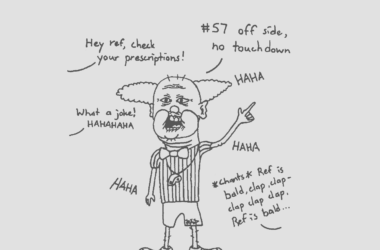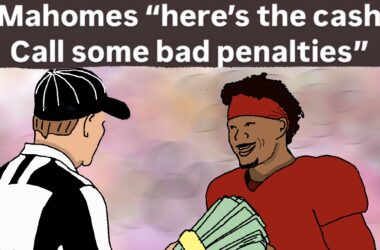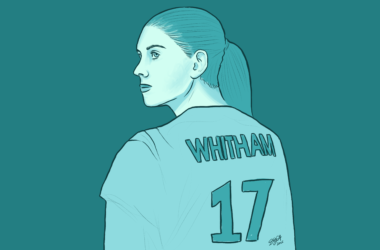What’s going on with the Miami Heat? Following the acquisition of Lebron James and Chris Bosh this summer, the Heat became the consensus favourite of pundits and fans across the league to win the Larry O’Brien Championship Trophy. However, the heated discussion that ensued wasn’t reserved for whether they would win the championship, it was for whether or not the Heat could go down in history by bettering the 1995-1996 Chicago Bulls’ 72-win season. In recent history, the 2007-2008 Boston Celtics were the only team to unite three superstars, winning the Larry O’Brien trophy in their first year together. The expectations for the Heat are even bigger; the only issue is that the results have been disappointing so far.
With a fifth of the season over, the Heat are sitting at a pedestrian 9-8, sixth in a weak Eastern conference. Far from looking like the elite of the league, the Heat instead seem like a team that’s lacking direction and leadership.
The Heat have struggled in two important areas. They rank 21st out of 30 teams in rebounds per game, and they are the league’s third worst team in turnover differential. Following a loss to the Indiana Pacers, James said the issue was that, “We aren’t having fun right now.” While it may be the true that they aren’t having a good time, the reality of their struggle, it seems, is a basic economic principle: the law of diminishing returns.
For those unfamiliar with economics, the law of diminishing returns simply says that if the number of workers is increased (while all other factors of production remain constant), the resulting increase in output will eventually level off and then decline. The Miami Heat are an example of this law in action, as the added superstars have been less effective than they were on separate teams. This has made the Heat less productive overall.
Last year, Wade was the lone superstar on the Heat. This season he’s scoring five fewer points per game, and has just over half as many assists as last year. James, the reigning MVP, has also seen his stats take a hit. His points per game have dropped by six, and his assist totals have dropped as well. Finally, Chris Bosh—always mentioned after James and Wade—is averaging almost seven points per game fewer than he did last season. While it was expected that there would be some decrease in scoring for each member of the “big three,” the decrease in assists is concerning for Heat fans.
The team suffered their eighth loss on November 27. In 07-08, the Celtics didn’t hit eight losses until exactly two months later, on January 27. Boston didn’t suffer from the law of diminishing returns to the same extent because their big three (Pierce, Garnett, and Allen) understood their respective roles in the offence. They also didn’t all require the ball in order to be effective. One of Allen’s primary skills is his ability to move without the ball, and Garnett’s tenacity on defence was, and still is, his most valued asset for that Celtics championship team.
The Heat are nearly the polar opposite of that team. Miami’s big three were each the primary offensive weapon on their respective teams last season. This is shown by the metric usage percentage, which roughly measures a player’s involvement in his team’s offence. Last season, James, Wade, and Bosh all ranked in the top 10 for usage percentage, and James and Wade were first and second respectively. Under that guise, it’s understandable why they seem unable to work together as teammates and instead are playing like individuals. James conceded that fact, saying, “[Wade, Bosh and himself are] used to having the ball, making plays, finishing plays. It’s a process of having to still be aggressive but playing off the ball. It’s an adjustment.”
Additionally, Head Coach Erik Spoelstra runs an offence that is fairly isolation oriented. The Heat have been taking too many long two-point shots, as opposed to getting the easy, efficient buckets that the three superstars were supposed to provide. Previous teams stacked with superstars were a stark contrast to the Heat, including the Bulls teams of the 1990s and the Lakers teams of the early 2000s. Coached by Phil Jackson, these teams ran a triangle offence, which is conducive to getting more players involved.
Given the lack of success, there’s been growing recognition that it might be time to replace Spoelstra. Following the team’s seventh loss, Wade said, “We never predicted we would be 8-7. You understand it’s bigger than just talent. This is a prime example of that.” Jackson also stirred controversy by saying that Spoelstra should be replaced mid season by Pat Riley, like the Heat previously did with Stan Van Gundy en route to their 2006 championship.
In order for the Heat to shed their early disappointing performances they need to learn from their opponent, the Boston Celtics. The Celtics’ big three were able to adapt their style of play to fit, and excel in, a new situation. The Heat thus far have been unable to do so. Unless they can learn to better integrate each other into both the offence and defence, the Heat are doomed to go down in the books—not the history books, the economics textbooks.








